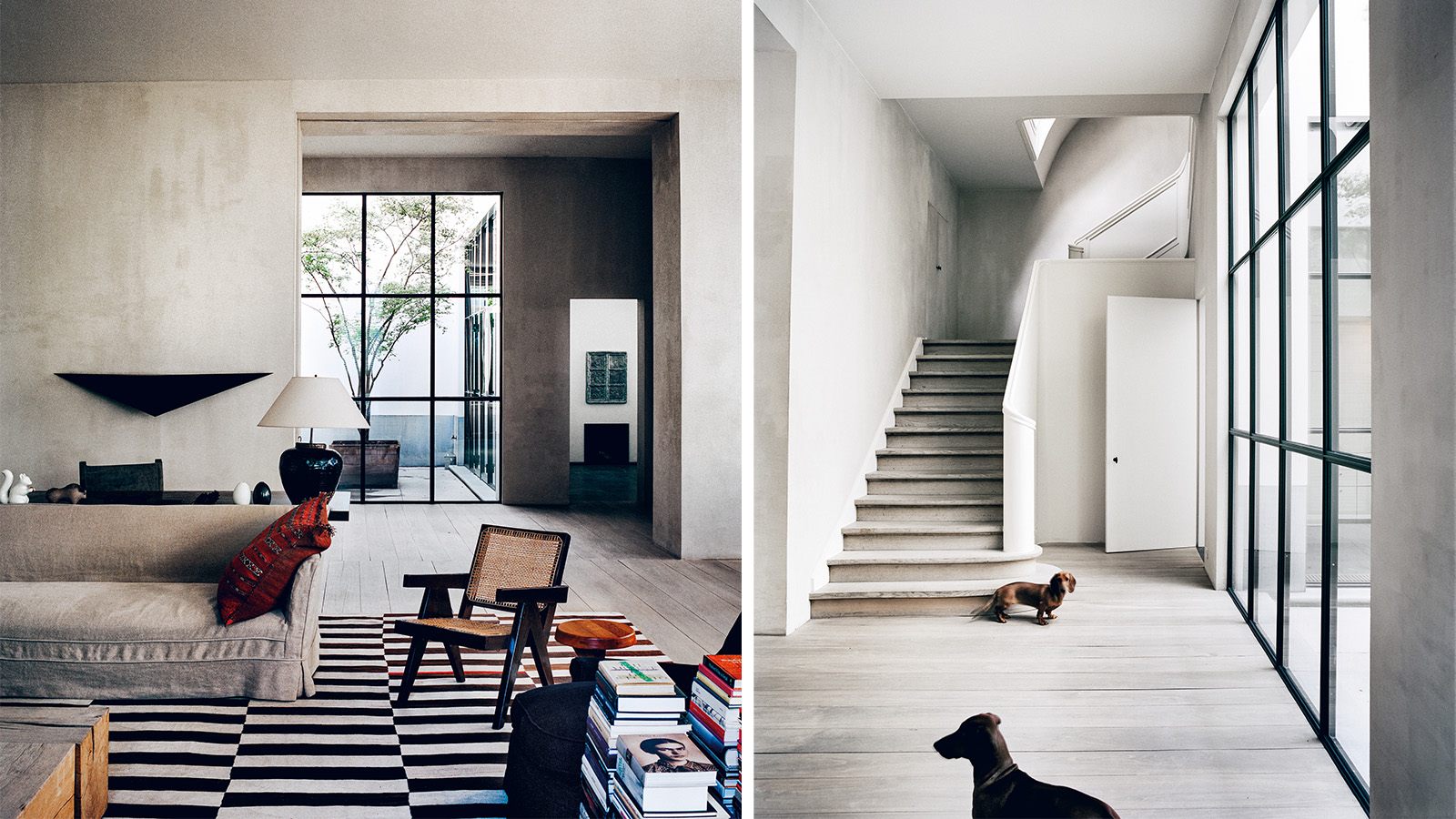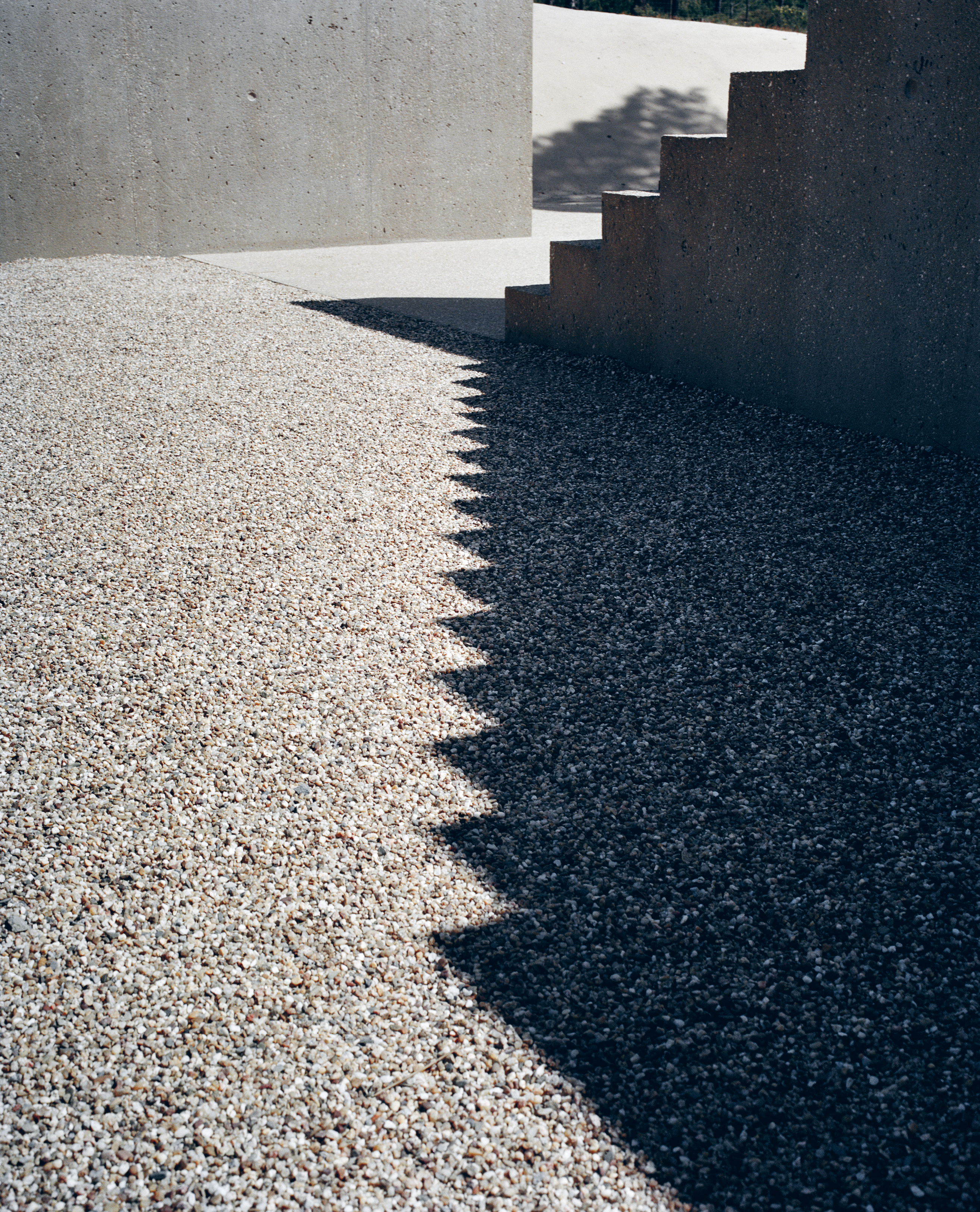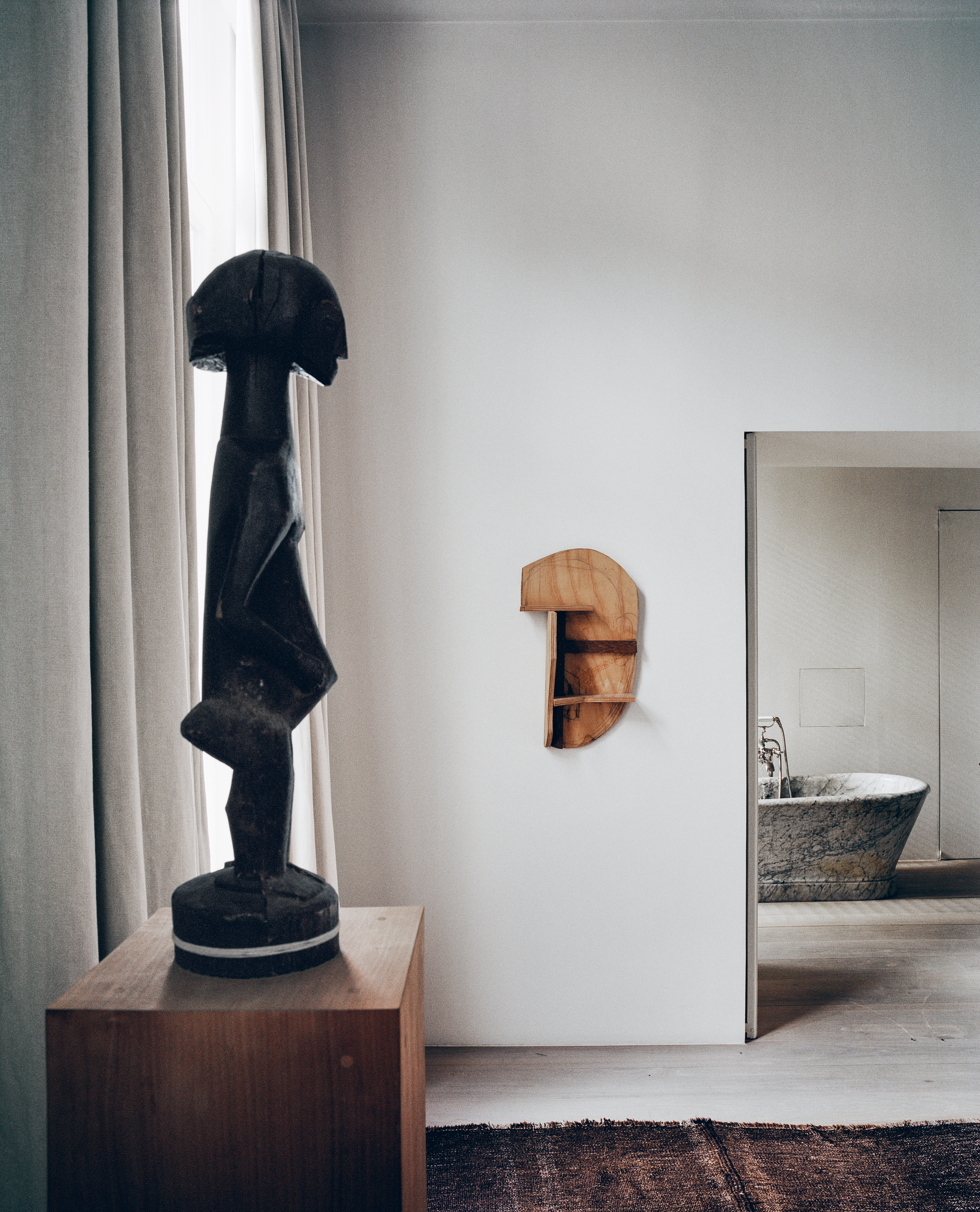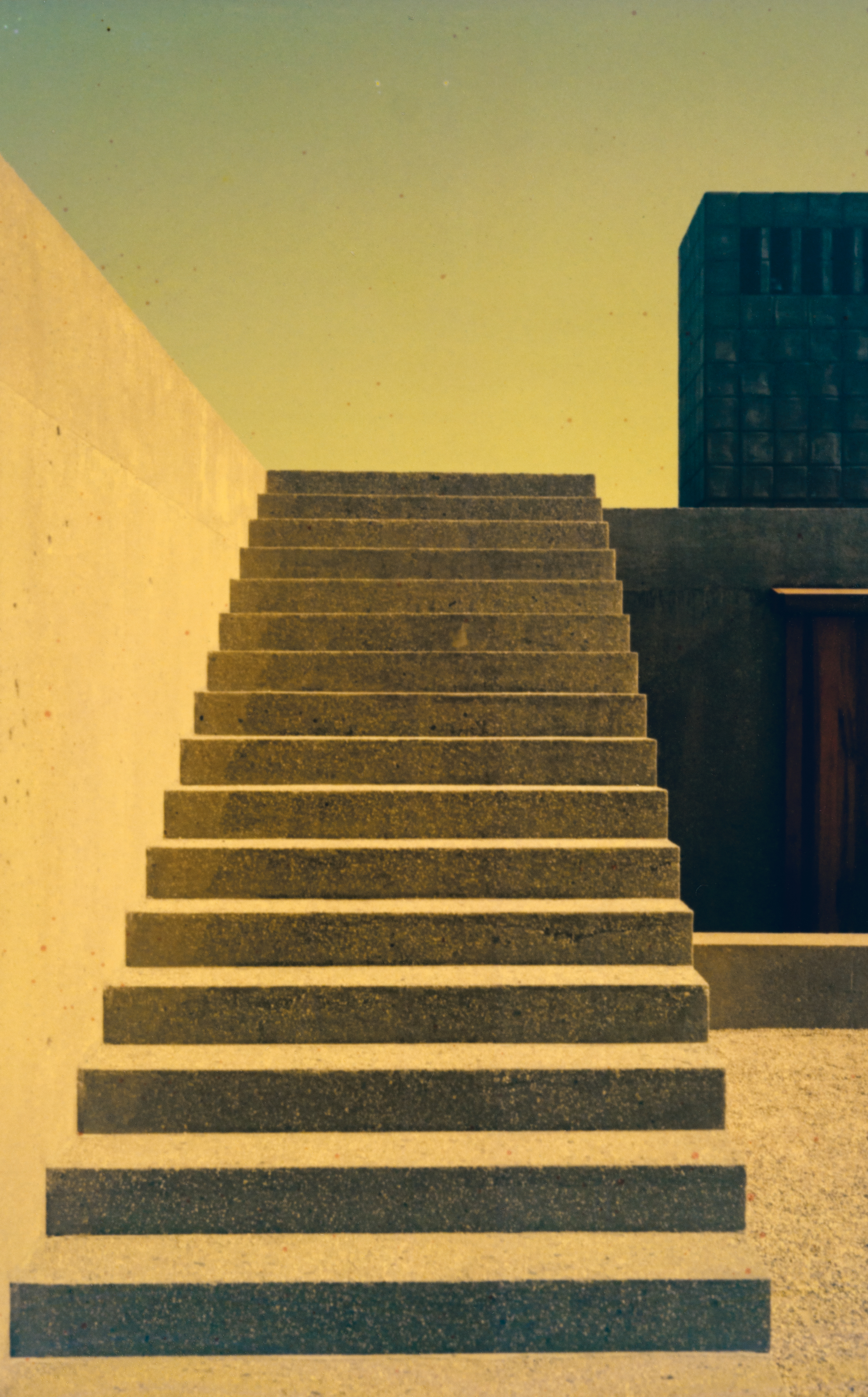
Over the past three decades, Belgian architect Vincent Van Duysen has put his uncompromisingly contemporary stamp on a series of minimalist spaces and pared-back designs, from a white stone-clad country retreat in Belgium, to immersive showrooms and an elegant pavilion for Molteni & C (a company for which he works as creative director) and sought-after collections for Zara Home.
'Vincent Van Duysen: Private' published by Rizzoli

Now a new book, published by Rizzoli, documents the source of his inspirations and ongoing laboratory: his own homes in Belgium and Portugal. Featuring beautiful photography by François Halard, ‘Vincent Van Duysen: Private’ aims to show a different side to the architect, exploring a dual domestic world and truly personal vision of his own practice.

Van Duysen is known for his use of tactile materials to create monolithic spaces that manage to be both monastic and sensual, brutal and elegant. But sometimes this stylistic approach is deemed cold and severe, something the architect is keen to refute through the examples of his own homes, a centuries-old former notary office in Antwerp, and his new-build Casa M in Portugal, where he lives with his beloved dachshunds Pablo and Flora.

‘They’re places for living, even though some people may think the opposite. My main house, in Antwerp, dates to 1870, with vestiges going back to the 17th century,’ writes Van Duysen. ‘The new construction in Melides, Portugal, is built into a dune with umbrella pines, in complete symbiosis with nature.’

The photo book is the result of a friendship between Van Duysen and Halard, a French photographer known for his interior and architectural shots. ‘I love being in Vincent’s spaces,’ writes Halard. ‘You feel good there; there’s something very human about them, which is quite different from the preconceived ideas about architectural minimalism: life, emotion, a special relationship to light.’

‘It was a challenge for me to represent this dichotomy between the muted white-grey mood of Antwerp and the exotic, marine atmosphere of Melides – the beating sun, the blue sky, the sea breeze, the saturated colours,’ explains Halard in the book. ‘I photographed these two houses in two distinct ways. I had to make people understand that Vincent’s work fits with all kinds of light in life.’

The peaceful, zen-like homes (where Van Duysen practises transcendental meditation) are best enjoyed barefoot, shares the architect. While his Antwerp base is filled with carefully chosen pieces from his art collection, including works by Sterling Ruby, Thomas Houseago, Katja Strunz and Nan Goldin, the Portuguese holiday home lets the surrounding nature take centre stage.
Van Duysen concludes: ‘My designs are demanding, very written, but life enters through the natural materials – in this case [in Portugal], the ipe wood, the sandblasted concrete, the tiny pebbles paving the exterior, the bricks made in Denmark; inside, the Belgian fabrics, the woven tribal rugs…’







